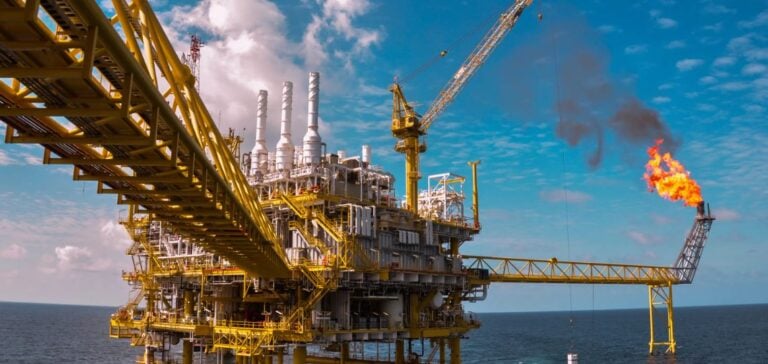The commitments made by the fossil fuel industry to reduce methane emissions—a highly potent greenhouse gas—are being challenged by a recent report from the think tank Carbon Tracker. Despite ambitious announcements, such as the “zero methane” target by 2030 pledged by 52 oil and gas companies during COP28 in 2023, significant flaws remain, threatening to worsen the global climate crisis.
In its analysis, “Absolute Impact 2024,” Carbon Tracker reveals that among 27 companies studied, few include specific measures to control methane emissions from midstream infrastructure, such as pipelines and liquefied natural gas (LNG) carriers. These facilities are significant sources of leaks. Only eight companies, including TotalEnergies, Shell, and ExxonMobil, consider these infrastructures in their climate goals.
Limited and Insufficient Objectives
Carbon Tracker experts also highlight the exclusion of joint ventures from most companies’ methane reduction plans. For instance, major players like TotalEnergies and Eni, which hold stakes in highly methane-emitting projects in Algeria and Egypt, fail to account for these indirect emissions. Chevron stands out as the only company to include such assets in its climate objectives.
The consequences of these omissions could be disastrous. Olivia Bisel, an analyst at Carbon Tracker, explains: “Oil and gas companies pay lip service to climate action, while the emissions from their products continue to fuel increasingly severe natural disasters.”
An Underutilized Climate Lever
Methane is the second most impactful greenhouse gas after carbon dioxide (CO2), with a warming potential 80 times greater over a 20-year period. Its shorter lifespan makes it an effective lever for rapidly reducing the impacts of climate change. According to the Climate and Clean Air Coalition, about 35% of global human-caused methane emissions come from the fossil fuel sector.
Despite affordable solutions to curb these emissions, global methane levels continue to rise. In the oil and gas industry, leaks mainly occur at wells, production facilities, or during transport. Yet, companies’ action plans remain largely inadequate.
Non-Alignment with Climate Goals
The report concludes that none of the companies analyzed align with the Paris Agreement’s targets to limit global warming to well below 2°C above pre-industrial levels. Carbon Tracker calls for better integration of midstream infrastructure and joint ventures into companies’ objectives to address these critical “blind spots.”






















